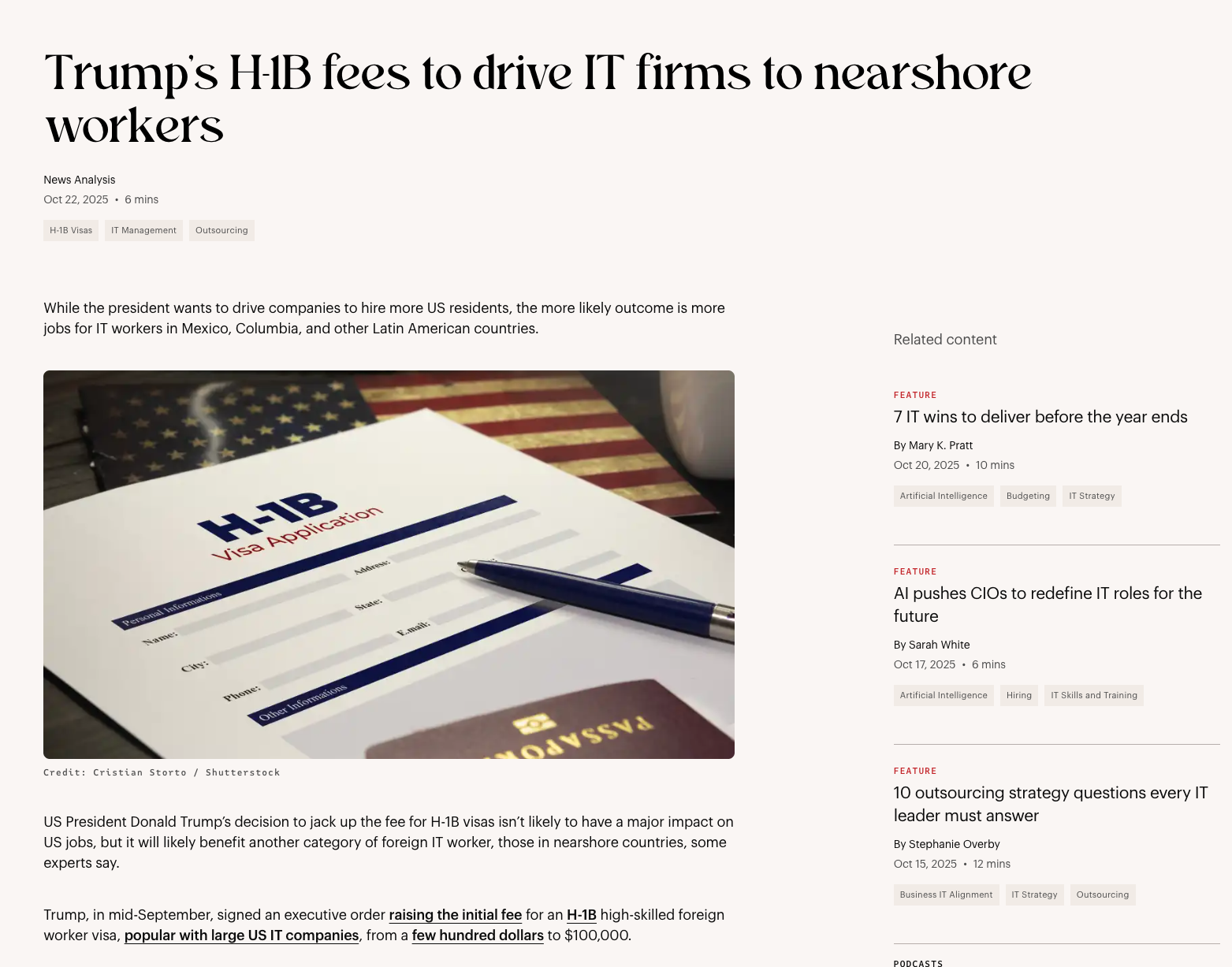Loren Locke quoted in CIO about Trump's new $100K H-1B Fee
In addition, Trump’s new policy may change the way US companies recruit young IT workers to study at US colleges, says immigration lawyer Loren Locke. With low H-1B fees, US IT firms would bring students to the US under the F-1 student visa, then transition them to the Optional Practical Training (OPT) program, which allows foreign IT students to work in the US for three years following graduation. After the OPT eligibility expired, IT companies would then transition the graduates to H-1B visas.
The increased fees will force US IT firms to rethink this process, Locke says. “The $100,000 H-1B fee means companies will likely continue recruiting these students for OPT positions but then deploy them to nearshore offices in Canada or Mexico after their OPT expires rather than paying six figures to keep them in the US,” she adds. “We’re essentially training top talent at American universities only to export them to compete against us.”
Nearshore complications
Locke sees a shift toward nearshore IT services, but while nearshore workers can seem like an attractive alternative to high H-1B fees, the practice can bring its own complications, she says.
Large multinational corporations like Amazon or Microsoft already have established international operations with the infrastructure to handle cross-border compliance, tax implications, and legal complexities, she says.
“For them, shifting H-1B-bound talent to existing offices in Toronto, Vancouver, or Mexico City is a relatively straightforward operational adjustment,” Locke adds. “They’ve already invested in the legal and HR frameworks needed to manage international workforces, so the $100,000 H-1B fee just accelerates a shift they’re already equipped to make.”
But smaller companies may not have the capacity to create permanent establishment issues for tax purposes, navigate foreign labor laws, or manage cross-border data privacy compliance, she adds.
“The $100,000 H-1B fee might seem like a one-time immigration cost, but the decision to nearshore instead triggers a cascade of international legal and operational complexities that require entirely different expertise,” Locke says. “So the $100,000 H-1B fee essentially creates a two-tiered system: Large multinationals have the flexibility to avoid the fee through nearshoring, while smaller employers lose access to international talent altogether.”
https://www.cio.com/article/4074797/trumps-h-1b-fees-to-drive-it-firms-to-nearshore-workers.html

